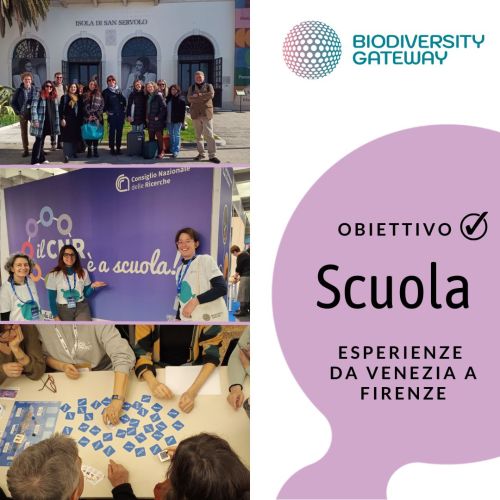A priority target of the National Biodiversity Future Center’s (NBFC) Biodiversity Gateway activities is the school world.
Biodiversity supports ecosystem stability, climate resilience and food security and plays a key role in our survival…but how much biodiversity culture is there in schools?
Building on this reflection, Biodiversity Gateway researchers and experts have coordinated cross-curricular activities, on the one hand to train faculty and on the other to engage students, with the aim of fostering new strategies for learning about the living world.
On the island of San Servolo, school leaders and teachers participated free of charge in the workshop “Relating to the environment: teaching biodiversity in the classroom,” promoted as part of the Biodiversity Gateway of the NBFC project financed by Next Generation EU funds, with coordination by CNR-Ismar – Venice branch, to understand how to “teach” biodiversity and include it in the educational offer with innovative and engaging methodologies.
The initiative, which is also present on the S.O.F.I.A. Platform (id. 96673) identification code 144331, promoted interdisciplinary transformative pathways in favor of knowledge, competence and responsible behavior to foster the development of a new environmentally conscious society.
In Florence, at the Didacta 2025 Fair-dedicated to training and innovation in the world of schooling-Biodiversity Gateway has, in addition,proposed a new activity: the management of a complex ecosystem such as a marine bay with high biodiversity through Game-Based Learning: a game to simulate an immersive experience of negotiating the use of the sea and finding a balance to protect biodiversity by ensuring the benefits that the natural environment offers us every day, ecosystem services.
These actions and the many others at “Biodiversity Gateway 2025 Calendar” aim to structure and cultivate an engaged and informed community ready to actively participate in science and environmental management to culturally “transition” to ecology, the study of biodiversity and ecosystems.


